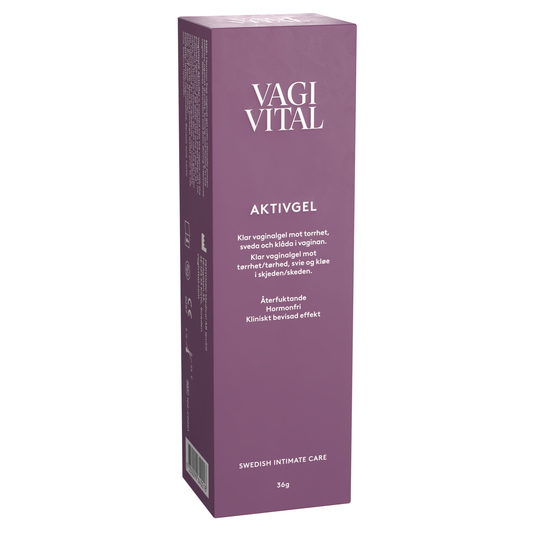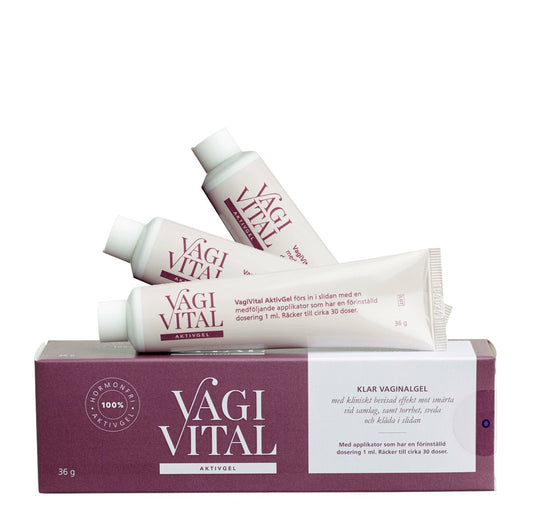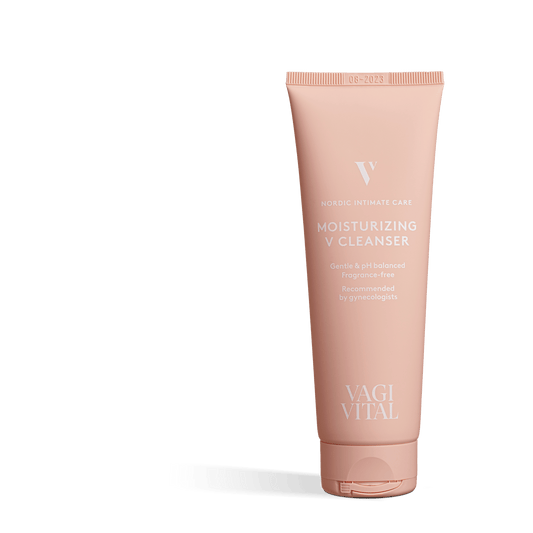Stress and hormones through the phases of life
Stress affects hormonal balance throughout life, from fertile age to postmenopause. Although most women are aware of this, many continue to experience stress. When life coincides with a series of stressful situations while we are in hormonal imbalance, it is not always easy to just "stop stressing." Sometimes it is difficult to determine what is the cause and what is the effect: do we become stressed because of hormonal imbalance, or is it our stress that creates this imbalance? And what can we do about it?
PERIMENOPAUSE AND STRESS
During perimenopause, levels of estrogen and progesterone begin to vary greatly. Stress increases cortisol production, which can lead to hormonal imbalance and worsen symptoms such as irregular bleeding, hot flashes, sleep problems, and mood swings.
Find out if you have entered perimenopause with 99% accuracy and get immediate results.
Buy VagiVital Menopause Self-Test here!
MENOPAUSE AND STRESS
During menopause itself, the production of estrogen and progesterone decreases dramatically. Stress can further worsen the hormonal balance, leading to symptoms such as sleep problems, fatigue, anxiety, and mood swings.
HOW STRESS WORSENS THE SYMPTOMS
Cortisol, often called the stress hormone, is produced in the adrenal glands in response to stress. When cortisol levels are constantly high, it can disrupt the production of other hormones, including estrogen and progesterone. This can lead to a relative estrogen dominance, where the body experiences symptoms of high estrogen levels despite these levels actually decreasing. The result can be worsened menopausal symptoms such as:
🌸 Increased hot flashes and night sweats: Stress can increase the frequency and intensity of hot flashes.
🌸 Impaired sleep: High cortisol levels can make it difficult to fall asleep and stay asleep throughout the night.
🌸 Mood swings: Changes in hormone balance, combined with stress, can lead to irritability, anxiety, and depression.
HOW STRESS AFFECTS HORMONES DURING POSTMENOPAUSE
During postmenopause (after menopause), levels of estrogen and progesterone are very low. High cortisol levels due to stress can further worsen hormone balance, which can affect:
🌸 Bone health: High cortisol levels can lead to decreased bone density, increasing the risk of osteoporosis and bone fractures.
🌸 Cardiovascular system: Chronic stress and high cortisol can contribute to high blood pressure and increased risk of heart disease.
🌸 Metabolism: Stress can negatively affect metabolism, leading to weight gain and an increased risk of type 2 diabetes.
🌸 Sleep disturbances and mood: Stress can lead to sleep disturbances and increase the risk of depression and anxiety.
EFFECTS OF STRESS ON FERTILITY AND MUCUS MEMBRANES
Stress can negatively affect hormone balance and thus fertility. High cortisol levels can disrupt the production of estrogen, progesterone, and luteinizing hormone (LH), which can lead to irregular menstruation and reduced fertility. Decreased estrogen levels due to stress can also lead to dry and sensitive mucous membranes, even in younger women.
VagiVital AktivGel is specially designed to moisturize and strengthen the mucous membranes for women of all ages❤️
Buy VagiVital AktivGel här! 
STUDIES ON STRESS AND WOMEN'S HEALTH
Research has examined the relationship between stress and various aspects of women's health. The results show that stress can worsen certain health problems, but that stress management techniques can alleviate symptoms and improve health.
🌸 Several studies have shown that women who experience higher levels of stress during menopause often report more severe symptoms.
🌸 A study published in Journal of Women's Health showed that stress management techniques such as mindfulness and yoga can significantly reduce menopausal discomfort.
🌸 Another study published in Menopause: The Journal of The North American Menopause Society showed that women who participated in stress management programs reported fewer and less intense menopausal symptoms compared to those who did not.
🌸 Another study published in Journal of Clinical Endocrinology & Metabolism showed that women who participated in stress management programs had better bone health and a lower risk of heart disease.
🌸 A study published in Fertility and Sterility showed that stress-reducing techniques, such as yoga and meditation, can improve fertility in women with stress-related fertility problems.
MANAGE STRESS BY STOPPING DOING THINGS
Both exercise and healthy eating are important, something most women are well aware of. Both yoga and meditation clearly show many health benefits related to stress management, which is really no news. However, when we try to reduce stress, a new to-do list with "useful" and "healthy" activities that are supposed to help us reduce stress is often added, which in itself can be even more stressful. Just the thought of fitting in a yoga session can be what makes the lid blow off. There is actually a limit to how much more you can add beyond the activities we already do daily. One way to try to reduce stress is to think about what you should stop doing in order to find a better balance in life. It may be worth looking at your work, your family situation, and your relationships.
Ask yourself questions like these:
🌸 What can I remove from my daily routine to reduce stress?
🌸 Are there activities or commitments I can stop to create more space for rest and recovery?
🌸 Is there anything in my work or private life that I can reprioritize or delegate to others?
🌸 How can I communicate my needs more clearly to family and/or colleagues to get more support?
Take care of yourself & Stay Pussytive❤️
/Fanny Falkman Grinndal
Business Manager Nordics
Peptonic Medical AB
fanny.falkman-grinndal@peptonicmedical.se
Recommended products for you
- Choosing a selection results in a full page refresh.
- Opens in a new window.













